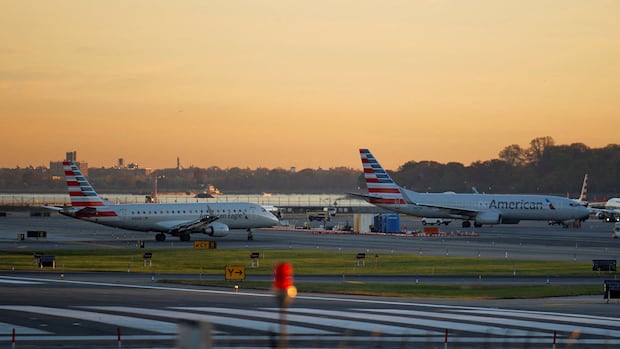Listen to this article
Estimated 3 minutes
The audio version of this article is generated by text-to-speech, a technology based on artificial intelligence.
The pain Americans are facing at airports across the U.S. is expected to get worse this week if Congress is unable to reach a deal to reopen the federal government.
U.S. airlines cancelled more than 1,500 flights Saturday and more than 2,900 Sunday to comply with an Federal Aviation Administration (FAA) order to reduce traffic as some air traffic controllers, who have gone unpaid for nearly a month, have stopped showing up for work.
As of early Monday, airlines had already canceled nearly 1,600 flights for Monday and nearly 1,000 for Tuesday.
The Senate took a first step toward ending the shutdown Sunday, but final passage could still be several days away and experts have said it will take time for flights to go back to normal even after the government reopens.
Democrats and Republicans in the U.S. Senate are reportedly near a deal to end the 40-day government shutdown, at least temporarily.
Many airports are facing significant delays for flights that haven’t been cancelled as well, with airports in Newark, Orlando, Chicago and Detroit all facing departure delays of more than an hour and increasing, according to FlightAware.
This is the second pay period that air traffic controllers have not received any pay for their work. The head of the air traffic controllers union, Nick Daniels, will hold a news conference on Monday morning to address the impact the shutdown is having on them.
The delays and cancellations are likely to get worse as airlines are increasingly unable to reposition planes, pilots and flight attendants due to the air traffic controller shortage.
The FAA implemented a four per cent mandatory reduction in flights this weekend to manage staffing. That will increase to six per cent on Tuesday and 10 per cent by this upcoming weekend. U.S. Transportation Secretary Sean Duffy said on Fox News Sunday that additional flight cuts of up to 20 per cent might be needed.
“More controllers aren’t coming to work day by day, the further they go without a paycheque,” Duffy said.
A reduction in U.S. domestic flights is underway at 40 airports in response to the government shutdown. The FAA has ordered a four per cent decrease in flights, and is expected to increase to 10 per cent by the end of next week. CBC’s Julia Wong on how the cuts could impact Canadian travellers, especially those who are catching connecting flights in the U.S.
The U.S. government has been short of air traffic controllers for years, and multiple presidential administrations have tried to persuade retirement-age controllers to remain on the job. Duffy said the shutdown has exacerbated the problem, leading some air traffic controllers to speed up their retirements.
While four per cent may sound modest, much of that reduction is happening at 40 of the nation’s busiest and most congested airports. The FAA says the flight reduction is necessary to keep travellers safe, as many of the remaining controllers have been putting in long hours and mandatory overtime while the government remains unfunded.
If not addressed soon, the situation could get even worse as the U.S. heads into the busy holiday travel season. Duffy said that air travel may “be reduced to a trickle” by the week of American Thanksgiving.










